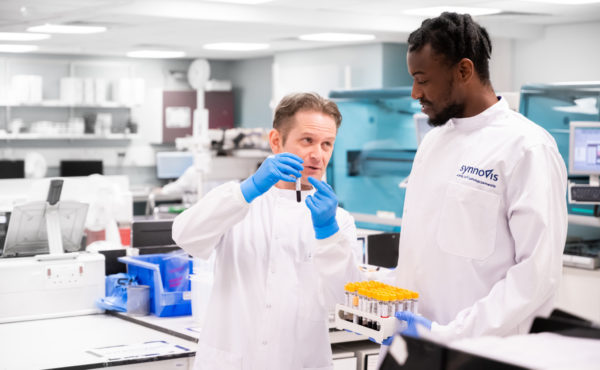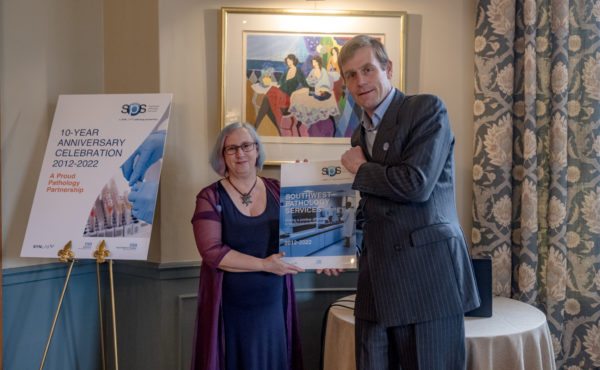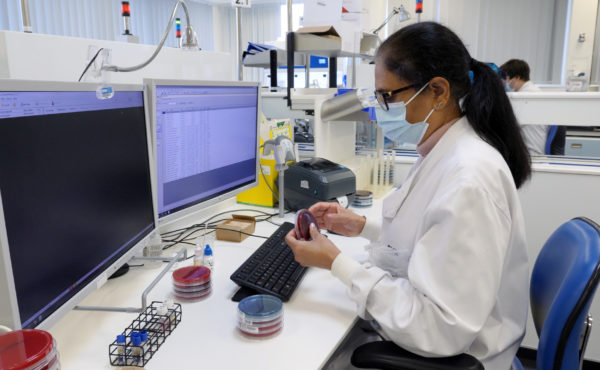Published: 18th May 2016
The new neoBona test will be revealed at The Private Pregnancy UK Show 2016 in London on the 21st May.
Neobona is the new generation in prenatal screening and is now available in the UK:
- The neoBona test offers expectant mothers greater accuracy and prevents women undergoing unnecessary invasive testing
- It reduces false positives, found in conventional screening, to practically zero compared to 5% in conventional testing
- It involves a simple blood sample from the mother and is available from the 10th week of pregnancy
- neoBona detects chromosomal abnormalities by studying the fetal DNA present in the mother’s blood
- Suitable for twins
- neoBona can be performed in cases of assisted reproduction including IVF through egg donation
The new generation of Non-Invasive Pre-natal Testing (NIPT), a simple maternal blood test, can now give potential parents a new level of certainty about the health of their fetus. Around 1% of fetuses have some type of chromosomal abnormality. However, up until now conventional screening has identified potential abnormalities in 5% of those screened. This means out of every 100 healthy fetuses, five are classified as positive and may be subjected to unnecessary invasive procedures which put them at risk of miscarriage. neoBona makes it possible to reduce this 5% to practically zero (less than 0.1%) preventing the need for further invasive tests.
This new blood test is available at The Centre for Reproductive & Genetic Health in London and other locations across the UK.
Hannah Blackburn, Business Development Director of Synlab UK explains:
“Clinicians should be confident they are offering their patients the most accurate test possible. No mother should undergo invasive tests, post initial screening, because there may have been given a false result. This test gives parents the most certainty possible. The sensitivity of neoBona is over 99%, meaning it detects practically all cases of chromosomal abnormalities and with the percentage of false positives at practically zero, a significant number of unnecessary invasive procedures can be avoided.
“How is this possible? By taking a blood sample from the mother, the test enables the examination of the fetal DNA in the maternal plasma and incorporates what is called the ‘fetal fraction’. This is what makes the neoBona test more precise than any other available, improving the reliability of the result.
“This test marks an important landmark in prenatal testing. Parents want to know about potential risks early on in the pregnancy. neoBona enables clinicians to provide the most accurate picture so parents can decide whether to proceed with further testing that may be associated with risk.”
Conventional testing:
One of the first things parents want to know, once they know they are expecting, is that the baby they are carrying is going to be healthy. Conventional first trimester screening only consists of an ultrasound and analysis that gives a statistical risk index and certain factors, such as age, also indicate potential risk, triggering the recommendation of further testing.
With invasive tests such as amniocentesis, a needle is used to extract a sample of amniotic fluid (the fluid that surrounds the foetus in the womb) and there is the risk of miscarriage to consider, estimated to be about 1 in 100. In addition, there is a chance that 1 in 10 Down’s syndrome cases are not detected and there is a 5% risk of a false positive result, so the uncertainty can be overwhelming.
The neoBona test can identify:
- Trisomies – a trisomy is caused by the presence of three copies of a chromosome instead of the regular two.
- Edward’s syndrome
- Patu’s syndrome
- Down’s syndrome
- Alterations in the sex chromosome resulting in:
- Turner syndrome and Trisomy of the X chromosome in girls
- Klinefelter syndrome and Jacobs syndrome in boys
- Chromosomal abnormalities caused by the loss of a small part of chromosomal material
About the test:
The neoBona test was pioneered by LABCO, part of Synlab, the European leader in diagnostic testing along with Illumina, the word leader in DNA sequencing.
To book a test, please call 0330 024 8985 or email: [email protected]
To find out more, please visit: www.neobona.co.uk
The Private Pregnancy UK Show 2016 is being held at The Royal Institution, 21 Albemarle Street, Mayfair, London W1S 4BS between the 21st and 2nd May 2016. You can find more details about the show here.
About Synlab:
This test was developed by part of Synlab, LABCO. The team has more than 15 years’ experience of innovating prenatal testing. It carries out more than 400 million tests a year in 35 different countries. It uses state-of-the-art techniques and has performed over 500,000 prenatal diagnostic tests to date. neoBona is the next evolution test resulting from over a decade of experience supporting doctors and parents. LABCO employs over 600 medical professionals and genetics experts.
To find out more please contact us.
Article Date: May 2016



